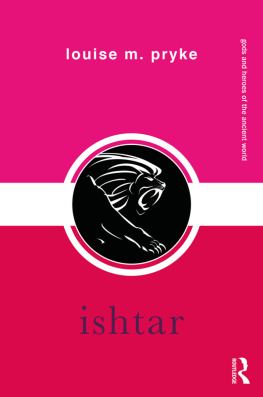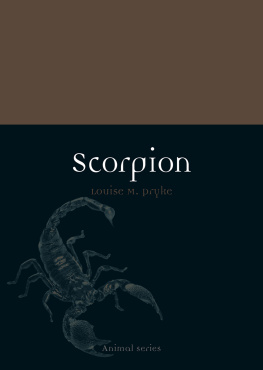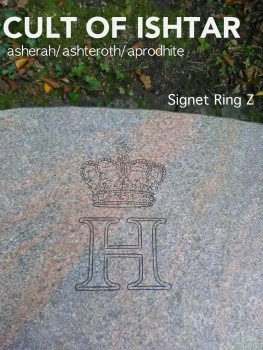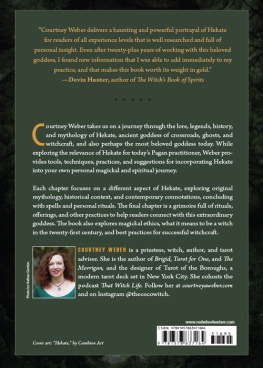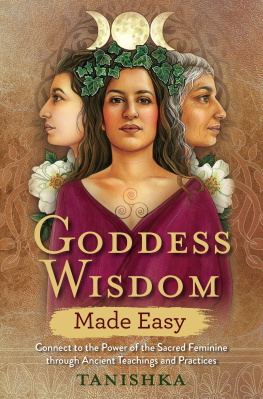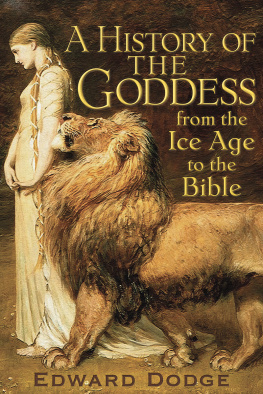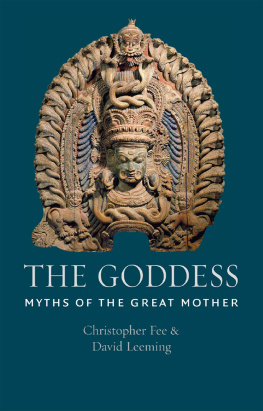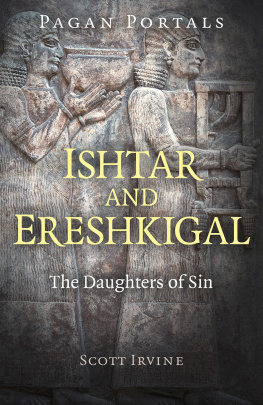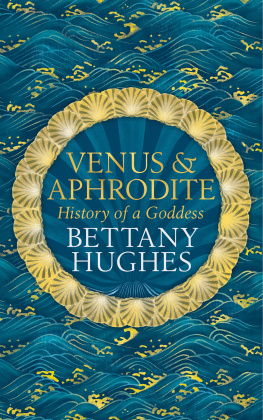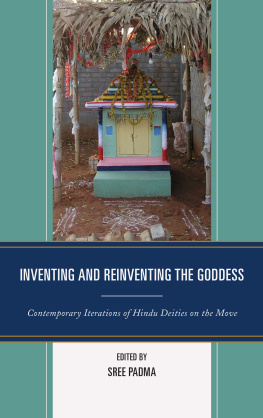
p.i

ISHTAR
Ishtar is, without doubt, one of the most complex and baffling of the many gods of antiquity. Yet Louise Pryke has achieved something quite remarkable here in synthesising the multivalence of the goddesss deeds and personas into a coherent and manageable whole. Full of good sense, yet written with flair, this study of the goddess of all goddesses is an important and infinitely useful contribution to the study of ancient myth and religion. The many sources in translation bring alive the world of Mesopotamian thought and forefront Ishtar as the most supreme of deities.
Professor Lloyd Llewellyn-Jones, Chair of Ancient History, Cardiff University, UK
Ishtar is the first book dedicated to providing an accessible analysis of the mythology and image of this complex goddess. The polarity of her nature is reflected in her role as goddess of sexual love and war, and has made her difficult to characterise in modern scholarship. By exploring this complexity, Ishtar offers insight into Mesopotamian culture and thought, and elucidates a goddess who transcended the limits of gender, divinity and nature. It gives an accessible introduction to the Near Eastern pantheon, while also opening up a pathway for comparison with the later Near Eastern and Mediterranean deities who followed her.
Louise M. Pryke is a lecturer in Macquarie Universitys Ancient History Department. She holds a PhD in Ancient Near Eastern History from the University of Sydney, where she is a Research Associate.
p.ii
Gods and Heroes of the Ancient World
Series editor: Susan Deacy, University of Roehampton, London
Uniformly excellent... The amount of information compactly conveyed is exceptional. ( Times Higher )
Deacy is to be credited with developing the concept and format for an engaging and informative series. ( Bryn Mawr Classical Review )
Now into its second decade, this series offers concise, comprehensive and authoritative guides to figures of key importance to classical antiquity. These divine and heroic personages are likewise embedded in our culture, many functioning as the sources of creative inspiration for poets, novelists, artists, composers and filmmakers.
Each volume provides a thorough understanding of each figure, offering the latest in critical research from the leading scholars in the field in an accessible form.
Concerned with their multifaceted aspects within the world of ancient paganism and how and why these figures continue to fascinate, the books provide a route into understanding Greek and Roman polytheism in the 21st century.
Each volume includes illustrations, time charts, family trees and maps where appropriate.
Also available:
Artemis
Stephanie Lynn Budin
Herakles
Emma Stafford
Aphrodite
Monica S. Cyrino
Apollo
Fritz Graf
Perseus
Daniel Ogden
Athena
Susan Deacy
Zeus
Ken Dowden
Prometheus
Carol Dougherty
Medea
Emma Griffiths
Dionysos
Richard Seaford
Oedipus
Lowell Edmunds
Forthcoming:
Theseus
H. Alan Shapiro
Susan Deacy is Principal Lecturer at the University of Roehampton, London. She is especially interested in ancient Greek religion and mythology and ancient Greek gender, sexuality and violence and continues to be intrigued by the question that Simonides thought he would be able to answer within a day: What is a god?. Publications include the co-edited volumes Rape in Antiquity (1997) and Athena in the Classical World (2001) and the forthcoming monograph A Traitor to Her Sex? Athena the Trickster .
p.iii

Louise Pryke

p.iv
First published 2017
by Routledge
2 Park Square, Milton Park, Abingdon, Oxon OX14 4RN
and by Routledge
711 Third Avenue, New York, NY 10017
Routledge is an imprint of the Taylor & Francis Group, an informa business
2017 Louise Pryke
The right of Louise Pryke to be identified as author of this work has been asserted by her in accordance with sections 77 and 78 of the Copyright, Designs and Patents Act 1988.
All rights reserved. No part of this book may be reprinted or reproduced or utilised in any form or by any electronic, mechanical, or other means, now known or hereafter invented, including photocopying and recording, or in any information storage or retrieval system, without permission in writing from the publishers.
Trademark notice : Product or corporate names may be trademarks or registered trademarks, and are used only for identification and explanation without intent to infringe.
British Library Cataloguing-in-Publication Data
A catalogue record for this book is available from the British Library
Library of Congress Cataloging-in-Publication Data
A catalog record for this book has been requested
ISBN: 978-1-138-86073-5 (hbk)
ISBN: 978-1-315-71632-9 (ebk)
Typeset in Utopia Std
by Swales & Willis Ltd, Exeter, Devon, UK
p.vii

It is proper for a person who is beginning any serious discourse and task to begin first with the gods.
(Demosthenes , Epistula 1.1)
WHY GODS AND HEROES?
The gods and heroes of antiquity are part of our culture. Many function as sources of creative inspiration for poets, novelists, artists, composers and designers. Greek tragedys ongoing appeal has ensured a continued familiarity with its protagonists. Even the world of management has used ancient gods as representatives of different styles: Zeus and the club culture for example and Apollo and the role culture (see C. Handy, The Gods of Management: Who they are, how they work and while they fail , London 1978). This series is concerned with how and why these figures continue to fascinate. But it has another aim too; namely to explore their strangeness. The familiarity of the subjects risks obscuring a vast difference between their modern and ancient meanings and purposes. With certain exceptions, people today do not worship them, yet to the peoples of the ancient world they were venerated as part of pantheon made up of literally hundreds of divine powers. These ranged from major deities, each of whom might, themselves, be worshipped in specialised guises, to heroes typically regarded as deceased individuals associated with local communities to other, though overlapping, forms of beings such as daimones and nymphs. The landscape was dotted with sanctuaries, while natural features such as mountains, trees and rivers could be thought to be inhabited by religious beings. Studying these beings involves finding strategies to comprehend a world where everything could be, in the words of Thales, full of gods.
To get to grips with this world, it is helpful to try to set aside modern preconceptions of the divine, shaped as they are in large part by Christianised concepts of a transcendent, omnipotent, morally upright God. The ancients worshipped numerous beings who looked, behaved and suffered like humans, but who, as immortals, were not confined to the human condition. Far from being omnipotent, each had limited powers: even Zeus, the sovereign of the Greek pantheon, could be envisaged sharing control of the cosmos with his brothers Poseidon and Hades. Moreover, ancient polytheism was open to continual reinterpretation, with the result that we should not expect to find figures with a uniform essence. Accounts of the pantheon often begin with a list of major gods and some salient function: Hephaistos/Vulcan: craft; Aphrodite/Venus: love; Artemis/Diana: the hunt, and so forth. But few deities are this straightforward. Aphrodite, for example, is more than a goddess of love, key though that function is. She is, for instance, hetaira (courtesan) and porne (prostitute) but other epithets point to such guises as patronage of the community ( pandemos : of all the people) and protection of seafaring ( euploia , pontia , limenia ).
Next page
